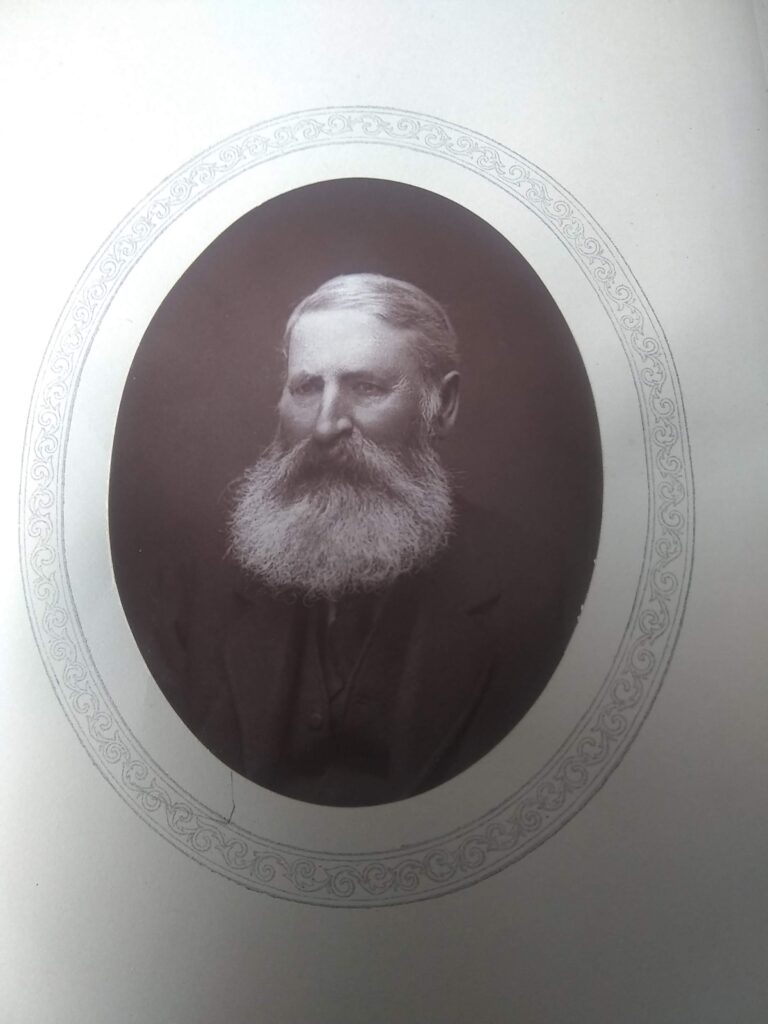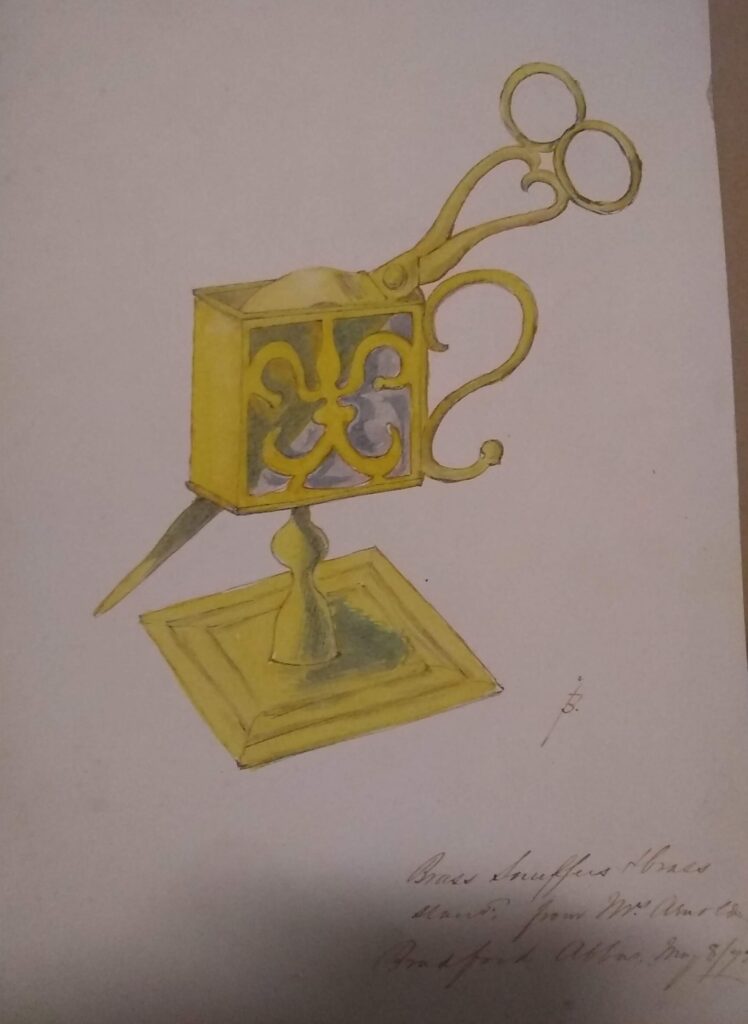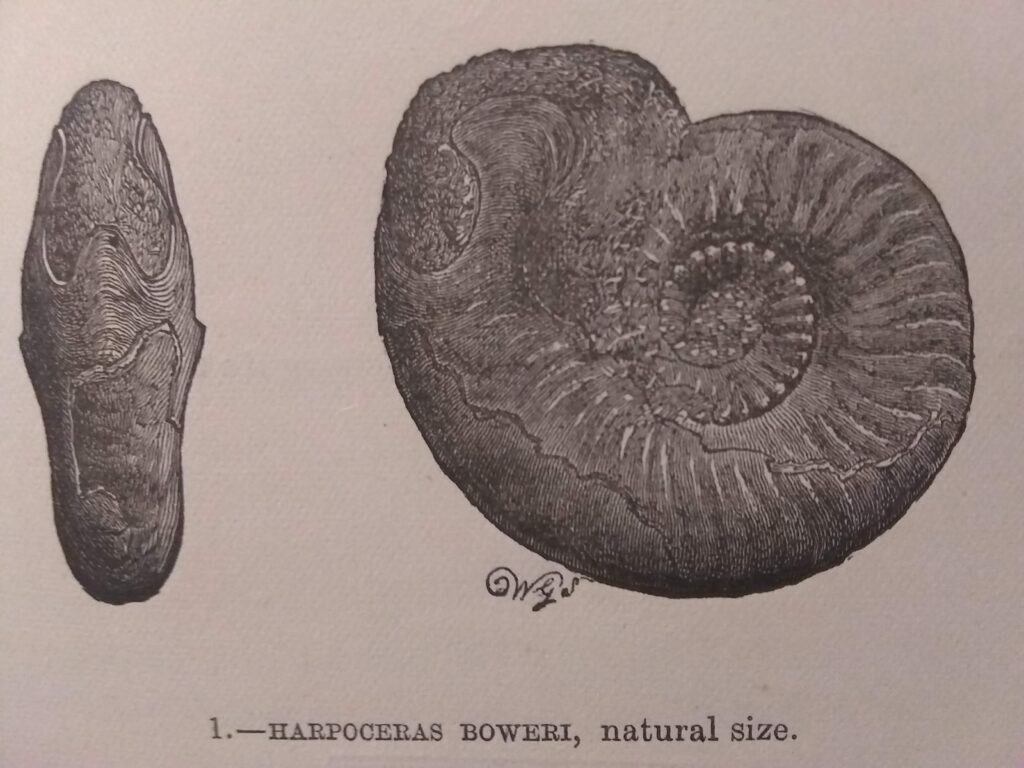In 1876 James Buckman founded the Dorset Natural History and Antiquarian Field Club, which was modelled on a club in Cirencester of which he had been a member. He was the secretary of this club and editor of The Proceedings until his death in 1884.

The Dorset History Centre holds several of his drawings of archaeological finds from Dorset and many of his articles can be found in the volumes of the Proceeding of the Dorset Natural History and Antiquarian Field Club in our reference library. In this blog we will uncover a little about his life and his family.
James Buckman was born in Cheltenham in 1814. He began his working life as a pharmacist, but always had an interest in botany and geology, writing several articles about the Cotswalds.

The collapse of his brother’s ironmonger business, which he had invested in, led to a career change. He was appointed as Secretary, Curator and Resident Lecturer to the Birmingham Philosophical Institution in 1846, then Professor of Geology, Botany and Zoology at the new Royal Agricultural College, Cirencester in 1848. This made him one of the first people in England to make a professional career as a scientist, most research before this having been conducted by the wealthy at their own expense.
At the Royal Agricultural College Buckman planted a botanical garden and conducted research on identifying species of grasses. This brought him into contact with Charles Darwin, who referenced some of Buckman’s studies in his ‘Origin of the Species’.
Unfortunately, this research brought Buckman into conflict with the Principal of the Royal Agricultural College, Rev John Constable, who believed that evolutionary theory was heretical as it was incompatible with the idea that living things had been created by Gods design, which did not change over time. Even though most of his staff disagreed with his views Rev John Constable prevailed, forcing Buckman and several of his colleagues to resign. After his resignation Constable destroyed the botanical gardens that Buckman had created.
It was not only in his professional life that Buckman suffered misfortune. In 1852 he married Louisa Elizabeth Dunn and in 1853 his son Conrad William James was born, but his son lived only 11 weeks and his wife died just over a month later.
In 1858 he married Julia Sophia Savory, the daughter of a wealthy apothecary. Julia and James had five children, Sydney Savory in 1860, Ada Hames in 1861, Katherine Julia in 1863, Minnie Georgina in 1864 and Percy Warner James in 1865. Sadly, Julia died shortly after Percy’s birth.
After leaving his job at the Royal Agricultural College Buckman and his family moved to a farm at Bradford Abbas where he continued his studies alongside taking in pupils to tutor. Among his achievements in this period was the creation of the parsnip as we know it today.
James was not the only member of the family who entered the world of science. His son, Sydney Savory, also studied geology and is known for his work on ammonites.

As well as his scientific work Sydney and his wife Maud were also part of the campaign for more sensible clothing for women, running the Western Rational Dress Club. This club fought for the acceptance of women’s trousers, which made it far easier for them to participate in activities such as cycling. This was a cause that seems to have been supported by his siblings as Katherine and Minnie are listed as attendees at the societies meeting in 1898.
Katherine was also a supporter of women’s suffrage, as shown by the 1911 census. Katherine would have filled in the return as she was by then a widow and the head of the household. In the column headed ‘Infirmity’ she entered ‘Unenfranchised’ for both herself and a female visitor and ‘Wants to Vote’ for her female servant.


So unusual to unearth documentary evidence of women supporting their rights, great work on the census!
[…] The Buckmans – Pioneers of New Ideas […]